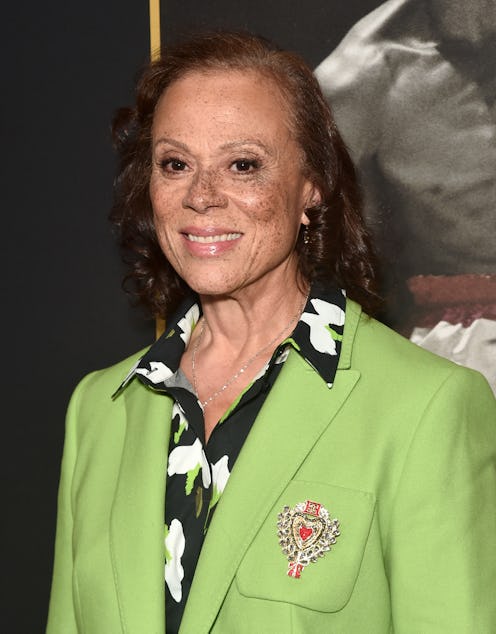Life
Lonnie Ali Wants Everyone To Be More Compassionate
“It's a composite of empathy and kindness."

One of the things that bonded Lonnie and Muhammad Ali throughout their marriage was their shared value for showing compassion to everyone they’d meet. Lonnie says that Muhammad, the GOAT heavyweight boxer, seemed to have this trait in his DNA while she — a philanthropist with an MBA from UCLA — picked up her kindness from her mom.
Throughout the 1980s, 1990s, and 2000s, the duo traveled to nonprofit events to raise awareness for important issues, and all the while Lonnie says she would watch her husband and the way he interacted with others.
“If Muhammad had a free day and a charity called and wanted him to come, he would go,” she tells Bustle via Zoom. “I bet we traveled maybe 250 days out of the year to charity events or humanitarian missions. His presence is how he felt he could help them. It was one of those things where you had to be there. He always had such a positive impact on people. People loved him.”
That legacy is something Lonnie continued to carry after her husband passed in 2016. She works with the Muhammad Ali Center in Louisville, Kentucky, which she co-founded in 2005 to showcase Muhammad’s career, as well as highlight broader issues connected to race, gender equity, and charitable causes.
As the center’s lifetime director and vice chair, Lonnie is overseeing the first-of-its-kind Compassion Report released on Jan. 16, and its accompanying Compassion Pledge, which Lonnie hopes all Americans will sign as a personal commitment to practice compassion daily.
The national research study surveyed 12 cities and used a unique blend of human and artificial intelligence to track and predict the state of compassion in America. It found that 60% of Americans believe compassion has declined since 2020, likely due to the increased use of social media and divisive discourse online.
Below, Ali talks to Bustle about the results of the study and what she hopes it will achieve.
How did the Compassion Report come to be?
It grew out of recognizing that we had changed as a society in how we treat one another. For me, I’ve noticed a lot of toxic discourse. People are retreating to social media to say very unkind things, but it’s also manifesting in the workplace, in the public square, and in how people talk to one another.
How do you define compassion?
It’s a composite of empathy and kindness, but it’s also a skill. Empathy is something you feel. Kindness is something you may have in your head. But compassion is something that’s active. That's what we do here at the center: We want Muhammad's legacy to be mobilized and active.
What stood out to you most from the report?
The seed is there. People want a more compassionate America. And for me, that's hope. That’s a light in the darkness.
How do you practice compassion personally?
I’m accommodating to people, I interact with them, and I go outside my comfort zone to extend compassion. It's not just once a week or once a month — you really need to show up like that multiple times a day.
Sometimes it can be exhausting, but Muhammad did it like taking another breath. It was nothing for him. It was natural. But it is a skill that we have to exercise daily. It's a muscle that has to be exercised.
Do you have any tips for being more compassionate?
You can’t be compassionate if you don't show yourself compassion first. If we don't have it in us, we can't give it out.
What do you hope to achieve with this report?
I’m very excited about the opportunity to use the results of the report and our recommendations, and how that's going to help community leaders, CEOs, organizational leaders, and policymakers engage in making more compassionate cities and see how that helps, not only with the city itself, but in making healthy environments for their citizens. If a city celebrates compassion and elevates compassion, they’re helping the entire community.
This interview has been condensed and edited for clarity.